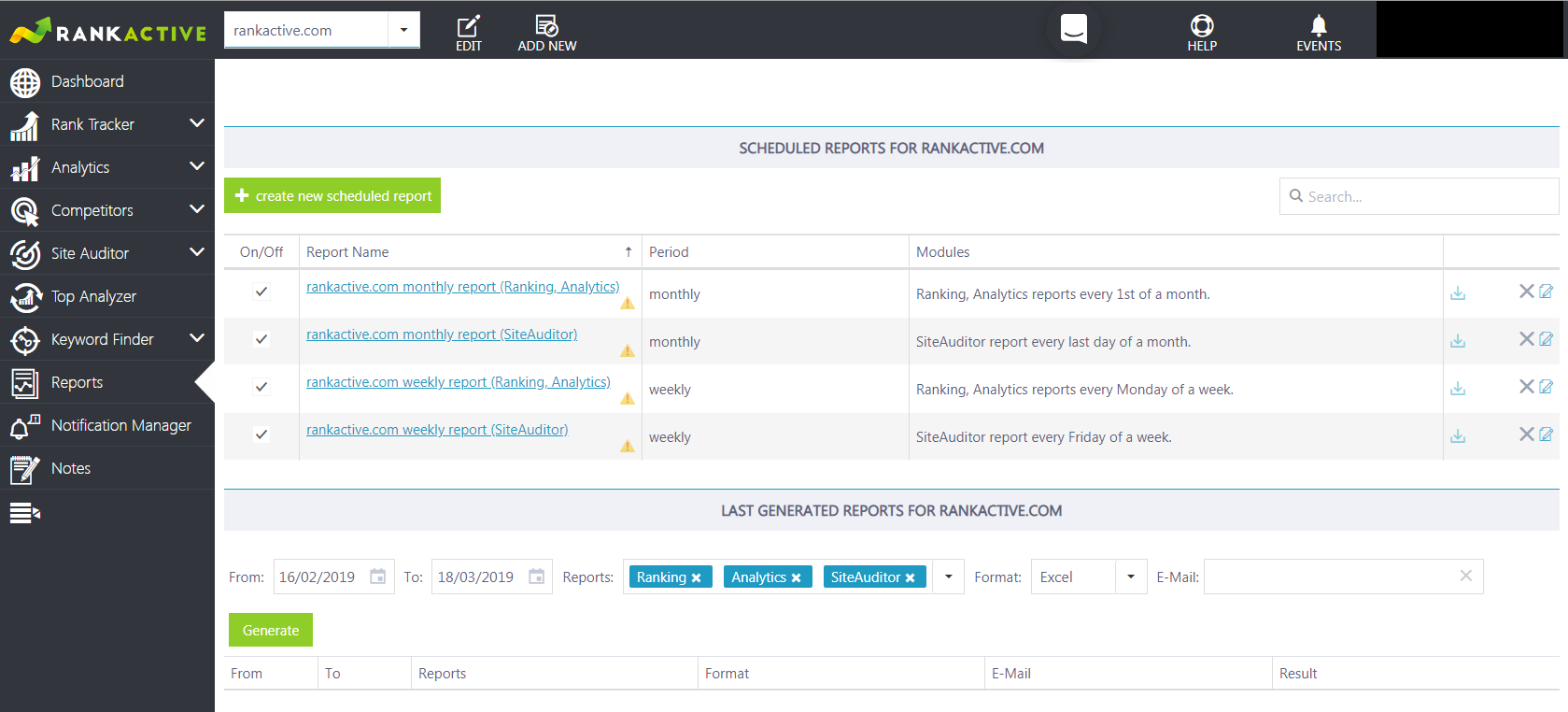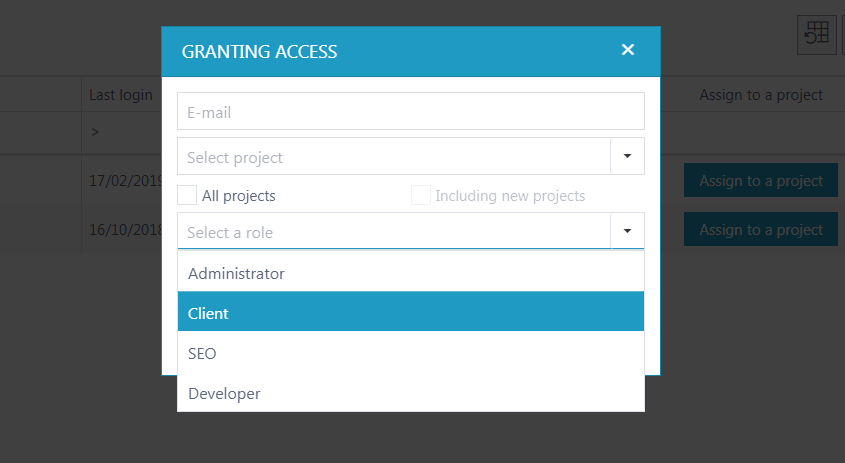Handling Client’s Unrealistic SEO Expectations [Checklist]
19 March 2019 Leave a comment ALL-HANDS SEO
How do you know that a project is finished successfully? Probably, you gather bounce and conversion rates, check on-page optimization, or count backlinks. That is all important, but it means nothing if a client is unhappy. When it comes to SEO strategies, unrealistic expectations appear here and there just like in any other type of business.
Can an SEO expert turn into a psychologist and make the world better for a business owner? Everything’s possible when you’re well-prepared. We’ve gathered some tips for you and transformed it into an actionable checklist. You’ll be able to set the tone in any partnership and save some nerves for both your client and yourself.
Warning Signs in SEO: How Unrealistic Expectations Look Like
You probably have your own collection of unrealistic expectations gathered during the SEO practice. But let’s try to recall the most common cases mentioned regularly in the SEO community.
- Top positions in Google as quickly as possible. The more money people invest in SEO, the faster they want to get a return on investments. It happens because business owners don’t understand the process well or/and they want to be ranked for highly competitive keywords.
- Ranking for all possible keywords in the industry. The more keywords the better – that’s what many clients still believe in. But keywords are not the cure for everything, and their number will strongly depend on the budget and keyword research.
- The number of backlinks over their quality. Most of the clients don’t know what a quality backlink is and they opt for cheap SEO services offering more backlinks than others. Will this do any good for business? In the end, it is a risky affair with potential penalties from Google.
- Traffic predictions based on the client’s calculations. There are some business owners who prefer building their own predictions regarding website traffic. Needless to say, these predictions are often optimistic and have nothing to do with the work process of the SEO specialist.
- The growing number of leads after an SEO campaign. If new leads are coming and the income is growing, this is a perfect outcome of the SEO activities. But sometimes, it’s not always about search engine optimization. It’s better to include PPC efforts in order to know if this particular keyword would bring paying leads to a website.
- Out-of-scope tasks on SEO shoulders. Content creation and search engine optimization go hand in hand, but it doesn’t mean that every SEO expert creates content plans and writes amazing blog posts. There are some tasks that SEO gurus should definitely NOT do.
How to Manage Unrealistic Expectations? Follow Up This Checklist
Finally, the cringy part is over. We’re ready to describe the actionable steps that help manage unrealistic expectations mentioned above and help to grow your SEO business. Maybe some of them you already use in your daily work, but only a combination of all these tips would yield fruitful results.
1. Set Specific Goals at the Very Beginning
No matter what project is waiting ahead, only specific goals give it a precise direction. A person who came to you for help knows very little about SEO, so initial negotiations play the main role.
If a potential client wants to improve conversion rates, discuss what numbers exactly he can expect within the given timeframe. If you realize that a deadline is unrealistic, say it straight ahead and you won’t get any frustration in the future.
After discussion, sign up a contract with every detail mentioned during negotiations. This way, you won’t get into the situation when a client wants something “as quickly as possible” and you’ll be immune from out-of-scope tasks. Plus, you know how clients love changing their demands after the project start. Point to your contract and check whether changes meet initial marketing goals.
2. Note Every Limitation
It is completely okay to admit that there’s something you can’t provide. In fact, being a jack-of-all-trades often damages the final quality of the product. At this stage, it’s a good idea to share your previous experience. Your portfolio and case studies give clients a clear picture of what they can expect working with you.
If, for example, a client has a vision of the final result, pay attention to it and give your feedback on whether it’s possible or not. The project’s limitations should also be discussed and eventually appear on paper.
3. Take Time to Make a Good Plan
Even if a client doesn’t care about how it’s done, a detailed plan allows for complete transparency in your partnership. If a long-term contract is signed up, there’s not only the final deadline to take care of – there are also several intermediate deliverables your team will work on.
Eventually, each deliverable turns into a list of deadlines, and it will take a client only one glance to check the project’s status. All in all, a good plan helps both your team and your balanced relationships with clients.
4. Point Out Possible Risks
What if something goes wrong? It happens in business all the time, and it is important to admit that the SEO branch is not perfect too. For example, you’re not getting feedback from the client, which impacts the final deadline. The person you’re working for should realize that he also influences the working process, and it’s better for him to know it from the very beginning.
To put all of the risks in one place, try to create a structured sheet with this data:
- The risk itself. Explain what out-of-plan factors may appear on the way.
- How high the risk is. As an expert, you already know what common risks are most likely to spring up during the SEO project.
- What to do about it. Here you describe how you will manage force majeure depending on its power of influence on the final result.
This way, you demonstrate not only the high level of expertise but also your understanding of the process and industry peculiarities.
5. Explain the Working Process
We’re not saying that you should tell clients how SEO works. Leave detailed explanations for your team players and focus on building trust. These simple points might sound obvious for you, but are they obvious for the new partner?
- How many people will work on this project and who of them are the most experienced.
- What working schedule you stick to and when you have days off.
- How fast the team answers letters sent via emails or messengers (usually, messengers are used for urgent issues).
- How often a client will get an update on the project’s status.
- What tool is used to track current tasks and how a client can check it.
These tips naturally lead us to the final point which is about a well-set communication strategy. Answering emails is only the tip of the iceberg – let’s see what else is there to work on.
6. Communicate and Then Communicate Again
Thinking that everything’s clear and you can forget about some trivia conversations for a week or so is the biggest no-no in project work. While you remain silent, the client is guessing. He’s making assumptions and prepares a load of questions for you.
Here’s another scenario. You’re not waiting for questions – rather, you’re answering them even before they emerge in the client’s mind. The second scenario gives you way more chances to demonstrate your expertise. So, where you should start?
It is always a good idea to begin with a professional SEO report. Fortunately, there’s no need to manage it on your own and fill in numerous data sheets. Instead, you can choose an advanced SEO tool and entrust it with all the dirty work. A solid report within a minute or so? Not a problem with Report Center built by RankActive.
Here’s how the interface of the Reports section looks like:
These are your main benefits with this feature:
- Reports are sent automatically right to your email. You can choose monthly and weekly reporting as well as receiving docs on the particular day of the month.
- There’s an opportunity to add your client as another recipient. Strictly speaking, you can add as many email addresses as you need.
- Reports will be received at the time you choose. If you believe it’s better to send reports in the morning, pick your timezone and select the exact time of the report delivery.
- In the same section, you can generate a report right away. All you have to do is to enter your email and pick the report’s type, the data’s time period, and a file format.
There are three types of reports available: Rankings, Analytics, and Site Auditor. Here you can find more information on each of these types.
Maybe you have a demanding client who won’t wait for the report? We’ve got your back in this case too. You can add a new user to a project who will have limited access. The client will be able to see the current status of the project at any time suitable for him.
But the long-term partnership is not only about reports. Taking strategic steps, avoiding risks, changing plans, and discussing new trends and algorithms – all of it happens during face-to-face meetings. Be it video calls or personal meetings, make sure they take place regularly and provide improvements to a daily working routine.
Work with a Client in Mind
As you can see, experienced specialists don’t handle unrealistic expectations – they know how to prevent them before they even appear. The checklist we’ve reviewed today is all about a good conversation. Whether it’s contract signing or day-to-day updates, every stage of the work should be discussed beforehand.
RankActive is ready to help you with regular SEO reports. We gather all the data about rankings, on-site optimization, and website analytics and put it into neat documents that serve your business reputation.
Tags: Deal with clients, difficult clients, SEO reports
Like this article? There’s more where that came from.
- 5 Questions to Ask Yourself Before Paying for Rank Tracking Software
- 5 Serious Mistakes Beginner SEOs Make and How to Fix Them
- Why We Use Google’s New Link Attributes and You Should Too
- Title and Description in 2021: Why Google Rewrites SEOs’ Meta Tags
- What We Should Learn From Google’s “About This Result” Feature






